
32 Books to Read During the World Cup
One Great Book from Each Country
Some people wait for new books from their favorite writers for years on end. Some people wait for the FIFA World Cup for years (well, four) on end. And of course, a few of us wait for both—and while by my count, we’ve still got about five years before we can expect our next Donna Tartt novel, the 2018 World Cup starts today, with host country Russia taking on Saudi Arabia beginning at 11am EST.
To celebrate, because both reading and soccer (football) are fun, I’ve recommended a book to read from each country with a team in the group stage—all by natives of the country in question, and (for the most part), set there. It goes without saying that no book can summarize an entire country—these are merely recommendations, to kick things off (as it were), and more are always welcome. So if you need something to occupy your thoughts and hands between games, or if you want to deepen your newfound Iceland fandom by digging into some of its hometown literature, or if you’re just interested in picking up a bunch of good books over the next few weeks—read on.
GROUP A
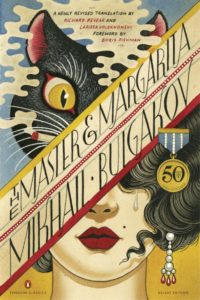 Russia
Russia
The Master and Margarita, Mikhail Bulgakov, tr. Richard Pevear and Larissa Volokhonsky
For the questionable host country, an unquestionable classic: Bulgakov’s sharp and hilarious novel of what happens when the Devil comes to Moscow. There are plenty of great Russian novels, of course, and read War and Peace if you must, but this is the novel I recommend above all others.
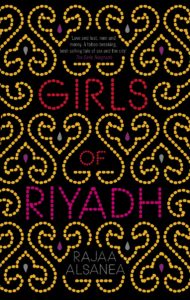 Saudi Arabia
Saudi Arabia
Girls of Riyadh, Rajaa Al-Sanea, tr. Marilyn Booth
A modern epistolary novel (read: emails) that chronicles the lives and loves of three young Saudi women from the “velvet class,” full of enough sex, drinking and other illicit activities to make it an instant bestseller and an instant banned book in Al-Sanea’s home country.
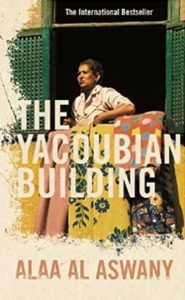 Egypt
Egypt
The Yacoubian Building, Alaa Al Aswany, tr. Humphrey Davies
This bestselling (and controversial) novel is, as the title suggests, set in and around a single building in downtown Cairo in the early 90s, whose inhabitants scheme, fall in love, study, make plans, and get in trouble in a series of interlocking vignettes.
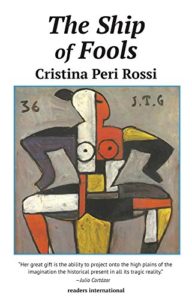 Uruguay
Uruguay
The Ship of Fools, Cristina Peri Rossi, tr. Psiche Hughes
An experimental novel from an iconic (and exiled) Uruguayan feminist which follows another exiled character, Ecks, through his travels and various encounters, as he finds his worldview challenged again and again.
GROUP B
 Portugal
Portugal
The Book of Disquiet, Fernando Pessoa, tr. Margaret Jull Coasta
The beauty of this book is that you can read (or at least start to read) a masterpiece in fits and starts between games—taking in one or another of the sometimes unfinished, often short sections of this semi-fictional semi-diary by a modernist master. Plus, in my view, there’s just no beating that goddamn beautiful cover.
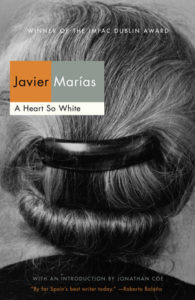 Spain
Spain
A Heart So White, Javier Marías, tr. Margaret Jull Costa
A hypnotic, brilliant novel for which there can be little effective summary, but suffice it to say that it is a relentless investigation into both past and present, both father and self by one of the best writers working today.
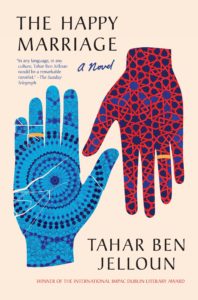 Morocco
Morocco
The Happy Marriage, Tahar Ben Jelloun, tr. André Naffis-Sahely
The story of a relationship in Casablanca, told from two perspectives—the husband, writing after being paralyzed by a stroke, and then the wife, after she finds his account and feels compelled to correct it. As Aaron Bady put it on this very website, he is “the sort of writer who gets mentioned every year as a possible contender for the Nobel, though he’s probably too good to ever get it.”
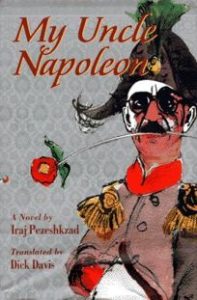 Iran
Iran
My Uncle Napoleon, Iraj Pezeshkzad, tr. Dick Davis
A modern classic of Iranian fiction, irreverent and satirical, published in the 70s and immortalized by a popular television adaptation. More importantly, the novel, Azar Nafisi writes in an introduction to the Modern Library edition, “is in many ways a refutation of the grim and hysterical images of Iran that have dominated the Western world for almost three decades . . . this novel represents Iran’s confiscated and muted voices, revealing a culture filled with a deep sense of irony and humor, as well as sensuality and tenderness.” If the World Cup is all about growing closer and understanding one another’s cultures, this could be (a small piece of) the ticket.
GROUP C
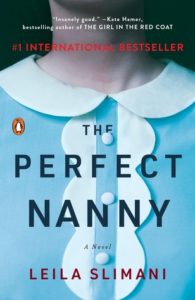 France
France
The Perfect Nanny, Leila Slimani, tr. Sam Taylor
France is another country whose literary classics are very familiar to Americans—Camus, Proust, Flaubert, Stendhal, Colette, Hugo—so I’ll choose a contemporary novel: Leila Slimani’s The Perfect Nanny, translated by Sam Taylor, which won the Prix Goncourt in 2016 and appeared in English this year. It’s a compelling unpacking of class, race, and parenthood in present-day France, inspired by a famous and grisly American murder case.
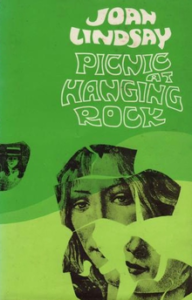 Australia
Australia
Picnic at Hanging Rock, Joan Lindsay
Obviously, especially if you’ve only seen it on screen. But I also want to throw in a pitch (I know, wrong sport) for Murray Bail’s Eucalyptus, which is equally wonderful if somewhat less iconic.
 Peru
Peru
The King is Always Above the People, Daniel Alarcón
Ditto the above for Mario Vargas Llosa. Instead I’ll recommend the most recent collection by the wonderful Peruvian-American writer Daniel Alarcón (whose stories are typically set in unnamed places, but close enough), which Laila Lalami called “a fresh look at migration, the oldest story of all.” And hey, if you don’t have time for a whole book, you could also just read this wonderful story about Alarcón’s father’s relationship to soccer—and his local fame calling imaginary games.
 Denmark
Denmark
Smilla’s Sense of Snow, Peter Høeg, tr. Tiina Nunnally
One of the forerunners of the Scandinavian crime fiction craze—and still one of the best.
GROUP D
 Argentina
Argentina
Ficciones, Jorge Luis Borges
It’s impossible for me not to give Borges top billing here, but it smarts a little, so please also consider the following: everything by Julio Cortázar (but particularly Hopscotch), everything by César Aira (but particularly Ghosts), Samanta Schweblin’s Fever Dream, and everything else on this list.
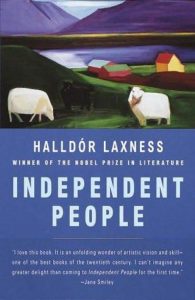 Iceland
Iceland
Independent People, Halldór Laxness, tr. J. A. Thompson
It seems as though pretty much everyone in Iceland is a novelist—some math tells us that one in ten Icelanders will publish a novel (though more recently, Britain has taken the lead in published titles per capita)—so there are a surprising number of books to choose from, considering the size of the country. I’ve gone with this wonderful, warm epic by Iceland’s only Nobel Prize winner, which may be the most famous outside of the country, but I also want to put in a plug for poet, novelist and somteime-Björk collaborator Sjón.
Emily Temple
Emily Temple is the managing editor at Lit Hub. Her first novel, The Lightness, was published by William Morrow/HarperCollins in June 2020. You can buy it here.



















